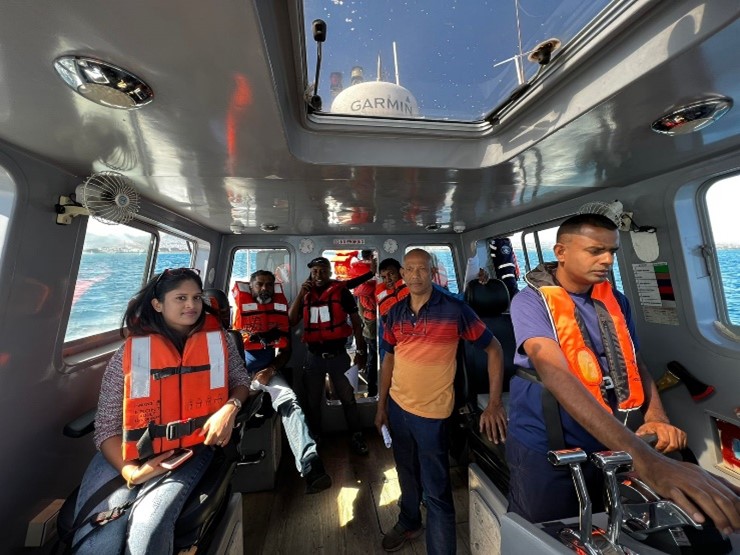UNODC Eastern Africa News and Stories
You are here: Home / News
Strengthening Port Security in Port Louis, Mauritius.
 Port Louis (Mauritius), September 22, 2023 – Mauritius's shipping and port infrastructure is vital for its national economy as a small island highly dependent on international trade. However, the region also faces significant challenges related to maritime crime, such as drug trafficking and crimes in the fisheries sector. These crimes threaten maritime safety and security and hinder the growth and development of trade. Efforts are being made to strengthen maritime security measures and enhance cooperation with international partners to combat these challenges effectively.
Port Louis (Mauritius), September 22, 2023 – Mauritius's shipping and port infrastructure is vital for its national economy as a small island highly dependent on international trade. However, the region also faces significant challenges related to maritime crime, such as drug trafficking and crimes in the fisheries sector. These crimes threaten maritime safety and security and hinder the growth and development of trade. Efforts are being made to strengthen maritime security measures and enhance cooperation with international partners to combat these challenges effectively.
The United Nations Office on Drugs and Crime Global Maritime Crime Programme (UNODC GMCP) organised a two-week advanced training course on port law enforcement in Port Louis, Mauritius as part of the third year of the EU Port Security and Safety of Navigation Programme for Eastern and Southern Africa and the Indian Ocean. Participants represented the National Coast Guard, Customs, private sector cargo handling services and other port security and law enforcement stakeholders in attendance. The training focused on incident management, waterside security, and the link between law enforcement and prosecution.
‘As a Maritime Security Officer, it was very important for me to upgrade myself through this excellent training course, which will help me in the exercise of my duty and how to collaborate, cooperate, and coordinate with other stakeholders in the maritime industry’, said Kaviraj Bissessur, a navigating officer from the National Coast Guard and a Maritime Officer at the Ministry of Blue Economy, Marine Resources, Fisheries, and Shipping.
The training equipped participants with the skills and techniques to combat maritime crimes and improve regional port security. Overall, this will contribute to the attainment of the United Nations Sustainable Development Goal 14 on Life Below Water, targeting Sustainable Management and Protection of Marine and Coastal Ecosystems.
‘The training provided valuable insights on the latest security protocols and techniques, enabling me to enhance my skills and contribute effectively to maintaining a safe and secure maritime environment. Additionally, the facilitators emphasized the importance of effective communication and information sharing, equipping me with the necessary tools to foster strong partnerships with other stakeholders in ensuring maritime security in addition to having a bird's eye view of seeing any situation to prevent, detect, tackle and mitigate any risk associated with Port Security and Safety of Navigation’, said Mr.Bissessur.
The training emphasized the importance of maintaining waterside security to prevent unauthorized access and potential threats, and participants gained a deeper understanding of the critical link between law enforcement agencies, highlighting the significance of preserving evidence and presenting it to support successful prosecutions. Additionally, the training course provided a platform for collaboration and coordination among stakeholders involved in port security, safeguarding maritime trade and preventing illicit activities.
This course was conducted with the support of the European Union through the Regional Programme on Port Security and Safety of Navigation coordinated by the Indian Ocean Commission and jointly implemented by the International Maritime Organisation, INTERPOL, and UNODC. This collaborative effort aims to enhance port security and ensure the safety of navigation in the Indian Ocean region.
For more information, please contact:
Mr. David O’Connell (David.OConnell@un.org)
Western Indian Ocean Programme Coordinator
Global Maritime Crime Programme
United Nations Office on Drugs and Crime
Click here to visit the UNODC Global Maritime Crime Programme website.